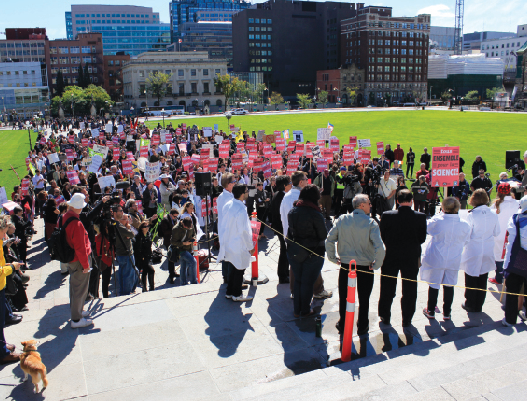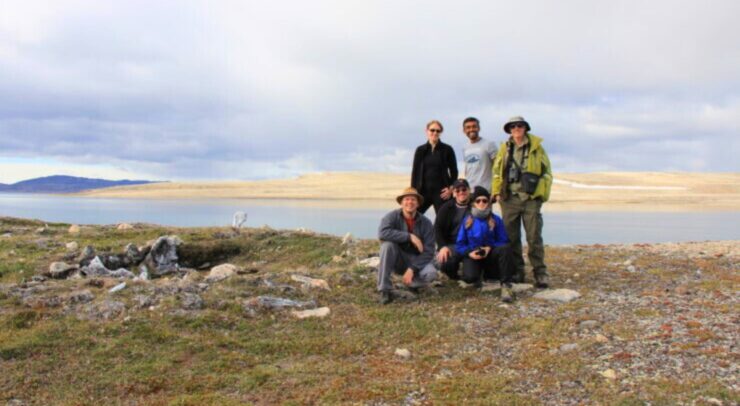Scientists come together on Parliament Hill to protest government cuts
Photo by Tina Wallace
HUNDREDS OF FEDERAL science employees, students, and supporters in Canada came together Sept. 16 in protest of the alleged muzzling of scientists by the Harper government that has occurred in recent years.
Gary Corbett is the president of the Professional Institute of the Public Service of Canada, a union that represents roughly 20,000 Canadian scientists working for various governmental research institutions. He said new government policies have resulted in cuts to many important scientific organizations and labratories, such as the experimental lakes.
“We have seen a dismantling of science programs over the last number of years,” Corbett said. “These actions include removing funding to go to conferences and a dismantling of programs.”
“This affects many of our members’ jobs and even more importantly, it eliminates strong organizations which are there to inform decision-makers on what is really going on.”
Corbett said there have been a growing number of cases of federally employed scientists publishing papers on controversial issues before having them removed by the government. He said this information is kept from the public in order to protect the industries that benefit from having researchers silenced.
Jean-Philippe Ouellette, a student at the U of O, attended the protest to emphasize the importance of open dialogue in scientific study.
“When you start muzzling scientists, there is a problem,” Ouellette said, waving a large red flag.
University of Ottawa graduate Katie Gibbs organized the Parliament Hill rally, which drew in hundreds of protesters. Upon finishing her thesis for her degree in conservation biology last fall, she started Evidence for Democracy, the group behind the rally.
As a U of O student, Gibbs was inspired by the idea of standing up against the government when it cut the mandatory long-form census in 2011.
“Anybody who has a basic stats course under his or her belt understands that changing it from an obligatory to a voluntary long-form census is even worse than not doing a census at all, due to the augmentation of bias,” she said. “That was really frustrating as they didn’t listen to any statisticians or scientists on why abolishing the mandatory census was a problem.”
Gibbs said more than 18 universities across the country have become engaged with Evidence for Democracy to lobby the government for more scientific freedom. She said getting involved in manifestations becomes increasingly essential as the Harper government changes the societal opinion of the science profession, and scientists are no longer respected as they used to be.
“Students should be active as what it means to be scientists becomes redefined,” Gibbs said. “The next generation of scientists includes doing things like this, speaking out about its importance, as opposed to just submitting research.





